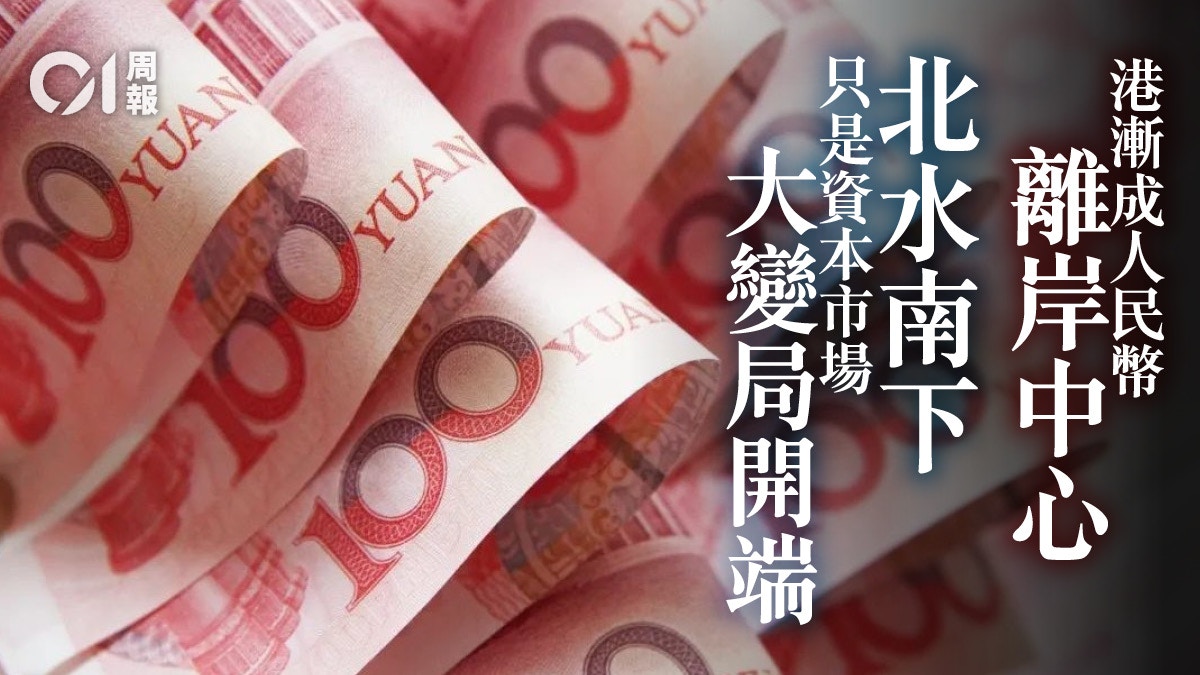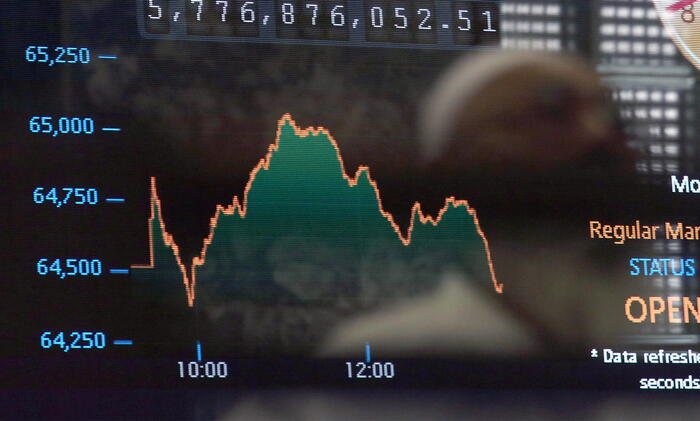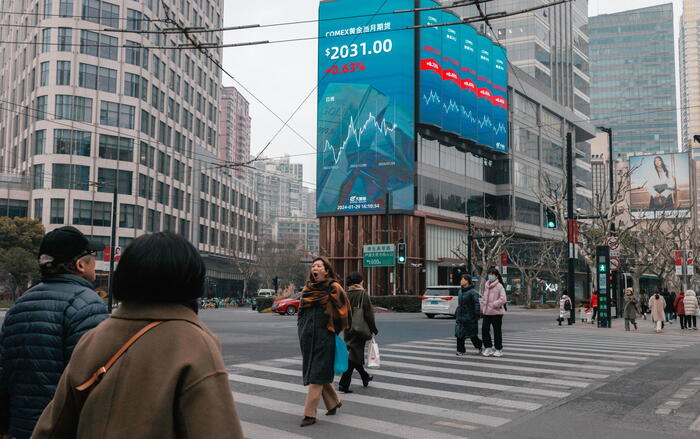weekly
Written by: Wang Yuchen
2021-02-02 14:45
Last update date: 2021-02-02 14:45
Entering the first month of 2021, a large amount of funds flowed into Hong Kong's capital market through Southbound Stock Connect channels, driving the Hang Seng Index to perform strongly since the new year.
Last Monday (January 25), the Hang Seng Index rose 2.41% to close at 30,159.01, which is another close of 30,000 points since May 2019.
The strong stock market in Hong Kong is closely related to the southward movement of "North Water".
According to the data, the cumulative net inflow of Southbound Trading from the year to date is more than 310 billion yuan (including the net purchase amount of transactions and the unturned amount of purchase declarations), and the average net inflow per trading day exceeds 15 billion yuan. This scale has exceeded the previous The record of the monthly net inflow of Southbound Stock Connect.
In just one month, the net inflow of Southbound Stock Connect has been equivalent to more than 40% of last year's net inflow.
In this round of uptrend driven by Beishui, individual stocks have frequently risen sharply, especially in new economy-related concept stocks. Meituan Dianping, Hong Kong Stock Exchange, and Tencent all set record highs last week.
Among them, Tencent rose by more than 10% last Monday, setting a record high of 767.5 yuan.
However, the Hong Kong stock market fell continuously after hitting a new high. In the following four trading days, the cumulative decline reached 6%, almost all the gains since this year.
At the close of the market last Friday (January 29), the Hang Seng Index fell by about 1% to 28,283.71, while the Hang Seng Technology Index fell 0.9% to 9,358.11, dragging down the Hang Seng Index’s increase this year to less than 4%.
On that day, the Southbound Fund actually bought 12.461 billion Hong Kong dollars in net net purchases, which has been a net purchase for 28 consecutive trading days.
After hitting a new high, the Hong Kong stock market continued to decline and adjusted. In the following four trading days, the cumulative decline was 6%, which almost pared all the gains this year.
(Photo by Zheng Zifeng)
Although the net buying of southbound funds has weakened, its determination to increase Hong Kong stocks does not seem to be affected by the decline in the stock index.
Since the single-day net purchase of southbound funds on January 19 hit a record high of HK$26.593 billion, the net purchase of last Friday’s trading day has always remained above 10 billion.
Among the 20 trading days in January, net purchases exceeded 10 billion yuan in 19 days, and net purchases exceeded 20 billion yuan in four days.
In the context of the Hang Seng Index's correction, individual stocks still received an increase in southbound funds.
Take Tencent as an example. Although the company's stock price has fallen by 11% in the last four trading days, as of the close of last Friday, Tencent has obtained net purchases for 26 consecutive trading days, with a cumulative net purchase amount of more than 107.208 billion yuan.
In addition to Tencent, Southbound funds bought CNOOC for 36 consecutive days, totaling 27.383 billion yuan; 11 consecutive days of net purchases on the Hong Kong Stock Exchange, totaling 13.552 billion yuan; 5 consecutive days of net purchases of Xiaomi Group, totaling 3.209 billion yuan; consecutive Net purchases of Meituan-Dianping on the 3rd, totaling 4.549 billion yuan; 3 consecutive days of net purchases of China Mobile, totaling 5.386 billion yuan.
Hong Kong stock valuation dispute
Regarding the recent sharp decline in Hong Kong stocks, Zhongtai International Securities believes that the current round of Hong Kong stocks’ rise is mainly driven by the "pulse" influx of southbound funds. When the stock price recovers from a low valuation to a reasonable or relatively high valuation, There will be more intense "long-short game".
The analysis believes that the main reasons for the recent sharp decline in Hong Kong stocks are: the overbought callback after the extreme short-term atmosphere; the return of short-term capital profits and the increase in the cost of capital. A-share adjustments have weakened the relative valuation advantage of Hong Kong stocks.
There are still low valuation stocks in Hong Kong stocks, attracting mainland funds.
(Data Picture/Photo by Deng Qianying)
From the historical experience, whenever the valuation of Hong Kong stocks drops to a price-to-book ratio (PB, the ratio of share price to net assets) less than 1, there will be a strong rebound.
According to the calculation of Zhongtai Securities, the rebound range is generally between 27% and 84%.
So far, since the Hang Seng Index fell below the net value in March last year, the increase has reached 35%, so the valuation is not low.
As more new economy companies come to Hong Kong for listing and are selected as constituent stocks of the Hang Seng Index, it is expected that the overall valuation of the Hang Seng Index will increase significantly.
Currently, the Hang Seng Index's price-to-earnings ratio (PE) has reached 16.9 times, and PB is 1.42 times, both of which are at historical highs.
In fact, the main reason why Hong Kong stocks have been in a "valuation depression" for a long time is that financial stocks and real estate stocks together account for half of the Hang Seng Index.
For detailed analysis, please read the full text of the "Hong Kong 01" weekly electronic journal.
"Kaishou" listed on the new and old economy at HKU
"Kaishou" IPO feast, Tencent's role is extremely critical
The above excerpt was recorded in the 251st issue of "Hong Kong 01" Weekly Report (February 1, 2021) "North Water is coming and Hong Kong stocks welcome the great era". If you want to read the full text, please
click here to
sample the weekly newsletter and browse more in-depth reports.
Selected content of 251 issue of "Hong Kong 01" Weekly News:
[Cover story] Elite thinking dominates the traditional economy to clamp down on Hong Kong's talent strategy dilemma
Beijing's policy of governing Hong Kong is shifting from "struggle" to "reform"
Why is "consultation theory" included in the Basic Law?
"Election" may not be better than "negotiation"
After the reflection of the GME war, who will pay the bill after the bloodbath on Wall Street?
"Kaishou" listed on the new and old economy at HKU
Under the epidemic, the elderly have no way to "medicate"
[Technology.
In the future] new variants will become normal, new coronary pneumonia will eventually become endemic
Gospel of the infertile and "alternative golden egg"?
U.S. fertility industry has huge business opportunities
Buy back public transit agencies to reduce commuting costs
Hong Kong Economy IPO new shares listed RMB RMB internationalization HSI


/cloudfront-eu-central-1.images.arcpublishing.com/prisa/3I74UEXLYRBBRPGPSGWNN6WXH4.jpg)




